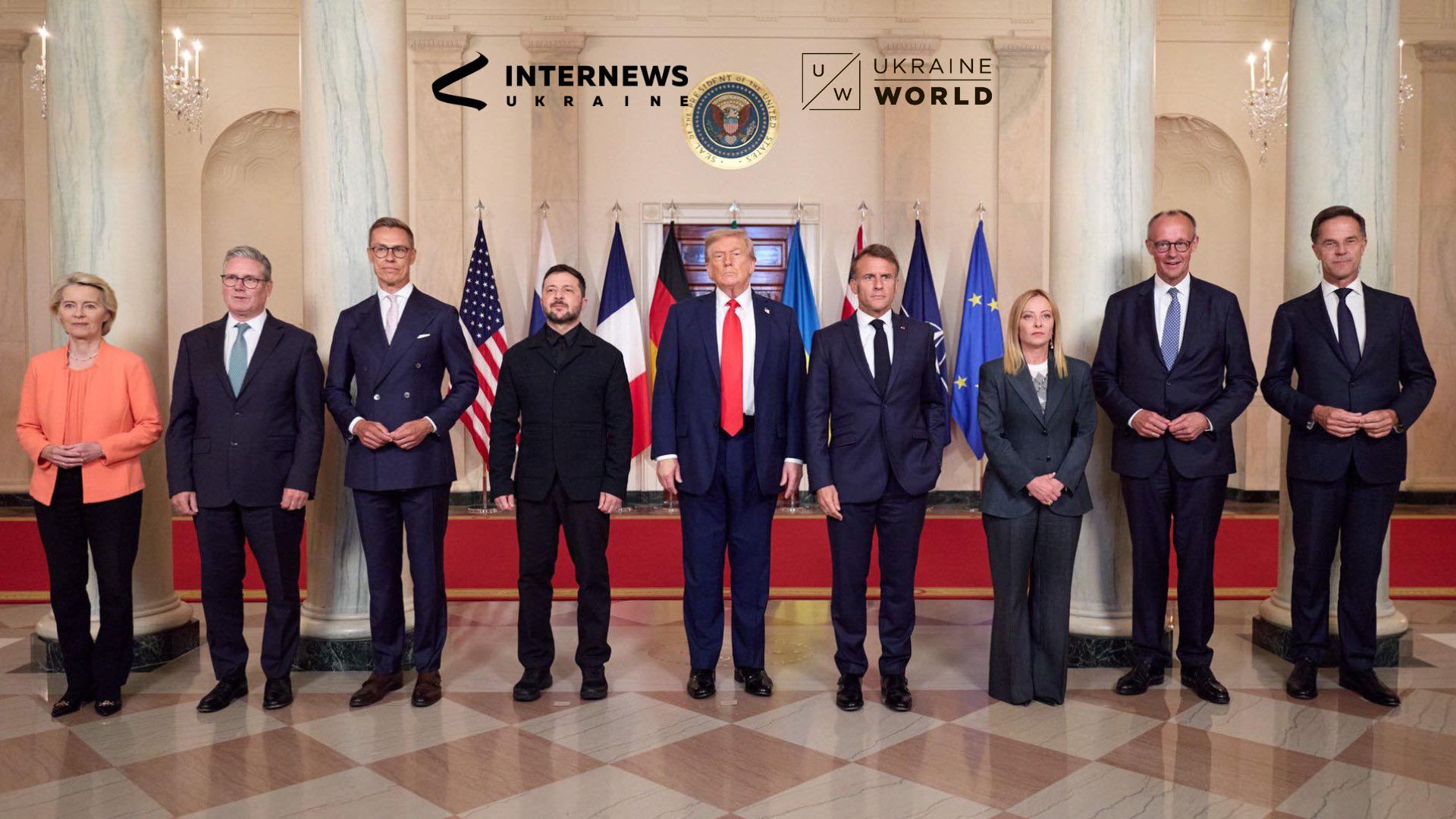Kyiv insists global partners deliver justice, not just promises.
Meetings in the USA, on August 18-19, with President Zelenskyy, Donald Trump and key European leaders marked a new stage in efforts to shape a framework for ending Russia's full-scale war against Ukraine. The talks went beyond temporary pauses, focusing instead on what real security guarantees for Ukraine should look like.
Here, we summarise the key points of these meetings:
1. Security guarantees for Ukraine - the central issue
- The proposed format is "Article 5 without NATO": collective response to aggression, but without Ukraine's formal membership.
- Secretary of State Marco Rubio is leading a task force to develop security guarantees for Ukraine with 4 key components: troop deployments, air defence, weapons and ceasefire monitoring. This initiative includes representatives from Ukraine, European nations and NATO.
- Europe is forming a "Coalition of the Willing" with 30 countries ready to contribute to different parts of the guarantees: peacekeepers, air and naval support, intelligence and defence funding.
- Trump confirmed U.S. support for Ukraine's security, while clarifying that American troops will not be deployed on Ukrainian soil, but Washington could provide air support as part of a peace deal.
2. Weapons and the defence industry
- Ukraine has proposed a$100 billion deal with the U.S. for weapons purchases - planes, air defences and more, financed by the EU.
- On top of that,$50 billion is planned for joint drone production, which the U.S. will also buy.
3. Peace talks and the U.S. role
- Zelenskyy accepted the proposal for a bilateral meeting with Russia, with the possibility of later expanding it to a trilateral format with the U.S. He emphasised that territorial issues would be discussed directly with Putin.
- European leaders (Macron, Merz) insist on a four-way format including the EU.
- The summit could happen at the end of August, but the date is not yet confirmed.
4. Humanitarian issues
- Trump agreed to assist with an "all-for-all" prisoner exchange - covering soldiers, civilians, and journalists.
- The issue of children abducted by Russia was also raised, highlighted by a letter from Melania Trump to Putin, signalling personal and international pressure for accountability of the aggressor state.
5. Geopolitical context
- China stated it supports "all efforts toward peace" following talks in Washington and Alaska. However, Kyiv emphasises that such statements do not equate to backing concrete security guarantees for Ukraine.
- Finland, Poland, the UK, Germany and others confirmed their participation in the "Coalition of the Willing".
- On August 18, President Trump called Hungarian Prime Minister Orbán, urging him to stop blocking Ukraine's EU membership talks.
- European leaders at the Washington meeting asked Trump to influence Orbán.
Following the meetings, Ukraine made it clear that peace cannot be built on promises, even the most optimistic ones.
Now, we need real mechanisms that will stop Russia's full-scale war against Ukraine and prevent it from returning in the years ahead:
1. No compromises on territory
- Ukraine will not agree to withdraw from its current frontline positions or legally recognise the occupation of any part of its territory.
- The Ukrainian constitution clearly defines the country's borders and Kyiv will not alter this principle.
2. Only a freeze along current lines is possible
- Ukraine could accept a ceasefire "along the frontline", but this would only be possible with real security guarantees and international oversight.
3. Security guarantees as a condition for peace:
- A strong Ukrainian army and defence industry capable of rapidly producing modern weapons.
- Bilateral agreements with key partners (U.S., UK, Germany, France and others).
- International cooperation in defence production, integrating Ukraine into Western defence supply chains.
- Ukraine does not plan to downsize its army after the war.
- Elections can only take place after a ceasefire.
- Legally binding commitments from Russia, reinforced by an international monitoring mechanism.
4. Avoiding mistakes of the past
- The 1994 Budapest Memorandum and the 2014-2015 Minsk agreements failed to restrain the Kremlin.
- Ukraine emphasises that any new system of guarantees must be practical, effective and capable of ensuring a collective response to any future aggression.
Ukraine is sending a clear message to the world: peace without real security guarantees is not an option, as Ukrainians have learned the lessons of past agreements the hard way.
These negotiations and the actions that follow must not only stop Russia's full-scale war and prevent future aggression, but should also send a clear message to dictators everywhere: the world stands by justice.
Support the UkraineWorld team.
UkraineWorld_Editorial

